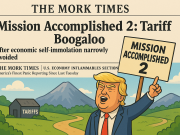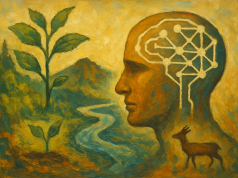As we stand on the precipice of a technological renaissance, the fusion of emerging tech with our daily work lives is inevitable. Sophisticated algorithms, intelligent automation, and groundbreaking machine learning capabilities are not just reshaping our tasks, but are also carving out a new ethical paradigm within the workforce. The conversation is no longer confined to the realms of efficiency and progress; it also echoes the values we hold dear in our work cultures. This article ventures into the labyrinth of integrating cutting-edge technology into our workplaces while holding fast to ethical standards that honor and protect the workforce.
As the Remote Work Specialist for The Work Times, I’ve observed both the triumphs and tribulations that accompany technological innovation. One prominent example lies within the manufacturing sector. Here, robotics and AI have streamlined production processes but have also displaced numerous jobs, prompting companies to re-evaluate their responsibility towards employees. Firms like ‘NewTech Industries’ have set a benchmark by implementing retraining programs, ensuring that their workforce remains relevant and employed in the wake of automation.
Regulatory frameworks have struggled to keep pace with these rapid changes. Governments and industry bodies are in a constant game of catch-up, designing policies that attempt to foresee and mitigate the negative impacts of technology on the workforce. GDPR in Europe, for instance, was a watershed moment for data protection, influencing how companies collect and utilize personal information – a fundamental concern in the age of AI-driven HR tools.
Yet, the solution doesn’t solely rest in the hands of policymakers. We need a new ethical framework, one that businesses can adopt to conscientiously integrate technology. Transparency, fairness, and inclusivity should be the cornerstones of this framework. Companies should not only comply with regulations but should also foster an environment where workers are educated about and can adapt to the technological changes that affect their jobs.
The essence of our discussion is not just limited to the implements of our trade but extends to the sanctity of our work culture. As we hurtle towards an increasingly digital future, it’s incumbent upon us to construct a work environment that not only celebrates innovation but also champions the rights and dignity of every worker. The fusion of emerging tech into the workforce is a narrative filled with promise and caution. Our collective vision for the workplace of tomorrow hinges upon our ability to navigate this ethical minefield with wisdom and foresight.

























